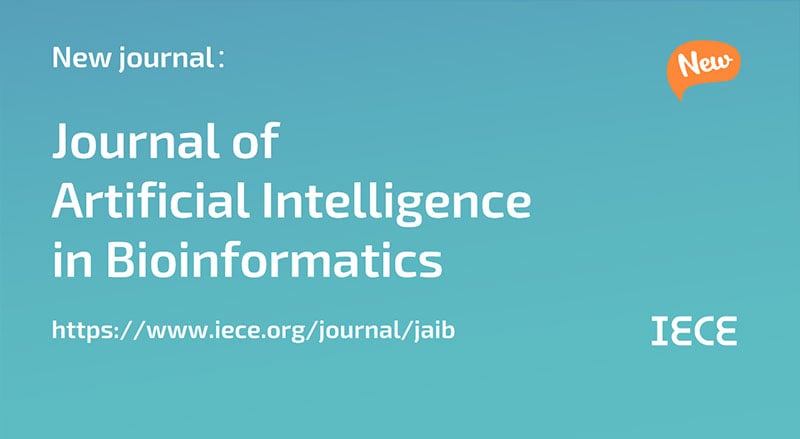The IECE Council has approved a proposal from the IECE Publications Commission to establish a new journal focused on artificial intelligence in bioinformatics. The new journal will begin accepting submissions for peer review starting in November 2024.
Aims & Scope
Journal of Artificial Intelligence in Bioinformatics (JAIB) is an international, peer-reviewed journal dedicated to publishing impactful research at the intersection of artificial intelligence (AI) and bioinformatics. JAIB serves as a platform for researchers, practitioners, and academics to present their innovations and findings, addressing contemporary challenges and fostering advancements within this multidisciplinary domain. The journal bridges bioinformatics and AI, covering a wide array of topics that cater to the latest scientific and technological developments. Through high-quality contributions, TAIB aims to enhance the translation of AI methodologies to real-world applications in life sciences, genomics, and healthcare.
The journal welcomes contributions on a broad spectrum of topics, including, but not limited to:
• Machine Learning and Computational Genomics: Applications of deep learning, reinforcement learning, and probabilistic models in genomics, proteomics, transcriptomics, and epigenomics.
• Medical Data Mining and Precision Medicine: Leveraging AI algorithms for predictive analytics, diagnosis, treatment planning, and personalized medicine with real-world medical datasets.
• Bioinformatics Algorithms and Applications: Development of novel algorithms for sequence analysis, structural bioinformatics, drug discovery, and pathway analysis.
• Systems Biology and Network Analysis: Integrative AI methods for multi-omics data, modeling cellular processes, and understanding biological networks and systems.
• Natural Language Processing in Biomedical Text Mining: Techniques for mining biomedical literature, electronic health records, clinical notes, and scientific data.
• Ethics and Interpretability in AI for Bioinformatics: Focus on ethical considerations, model interpretability, and explainable AI (XAI) in the context of bioinformatics and healthcare applications.
• AI-Driven Imaging and Diagnostic Tools: Development of AI-based solutions in medical imaging, histopathology, and radiomics for enhanced diagnostics and early disease detection.
• Emerging Trends in AI and Computational Biology: Exploration of new methodologies, including federated learning, meta-learning, active learning, and transfer learning, in bioinformatics and medical research.
Journal Website:



